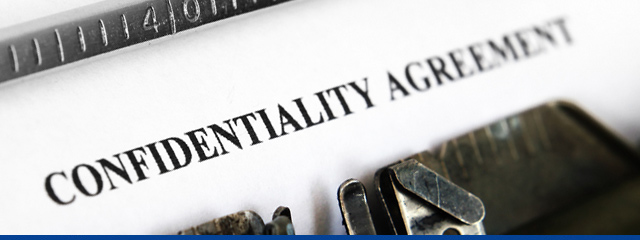-

-
Published on
27/08/2014
by Bill.Tamva
Everything You Need to Know Before Buying a Retail Business
Owning and running a retail business can be one of the greatest accomplishment you'll achieve – though of course, a lot of hard work is also involved.
Entering the retail industry can be overwhelming. When you take over a store, not only do you have to learn about new business plans, receiving and ordering stock and managing staff. There is also a plethora of legal requirements, permits and licences you must adhere to.
Here are the crucial points to running a retail business you'll want to remember so your work days run without a hitch:
Operational Health and Safety
Having an operational health and safety policy is one of the most important parts of running a business. In fact, you're legally required to have an OHS policy. Under the Work Health and Safety Act 2011, you as a business owner have a primary duty to eliminate risks to the health and safety of yourself, your employees and your customers.
Both you and your employees will have responsibilities under an OHS policy, so make sure you're all well aware of your OHS procedures.
Typically when you buy a store, standard operations will already be outlined in an existing operations manual. The OHS procedures are usually included in this document. The best OHS policy will address how to:
- Respond to hazards, such as fallen items, spills on the floor or blocked passages.
- Prevent hazards
- Implement appropriate procedures for stock handling and other staff matters.
Licences and Permits
It's easy to think that a retail store wouldn't need as many licences and permits as, for example, an eatery. Unfortunately that's simply not the case. If you're buying a pre-established business, it's likely the business already holds the appropriate licences and permits.
Retail licences and permits vary from state to state. But as a general rule, the following may affect you:
Licences
Standing Vehicle/Stall Licence
– You may need one of these licences from the local council if you want to sell goods from a vehicle or stall.Second-hand Dealer's Licence
– In some states you must purchase this licence if you want to sell second-hand or vintage goods.Music Licence
– This licence is essential if you want to play radio or television in your business. You can get 4 types of licence, including Public, Performance, Broadcast or Diffusion. Learn more and apply with the Australasian Performing Right Association.
Permits
Footpath Usage/Obstruction Permit
– In some councils, you may need a permit to put displays on the footpath outside your shop. Check with your local council to be sure. The permit will only apply during operating hours and at your business address.Advertising Signage Approval
– With some councils you must seek council approval before displaying new signs or changing existing signs.
To find out exactly what licences, permits and other registrations may apply to your retail store, use the Australian Business Licence and Information Service.
Legal Requirements
Any consumer product you sell in your business is subject to Australian Consumer Law. This means your products have to be safe by complying with relevant safety criteria. The Australian Competition and Consumer Commission provides a full list of products subject to mandatory standards.
If your product is unsafe, your customer has the right to a refund – and if you deny this right you can be subject to legal action against you. It's best to familiarise yourself with consumer rights and obligations so you are aware of your own responsibilities.
Staff Obligations
Many retail businesses employ additional staff to give support relief to the manager (which may be you or another employee). In any case, if you employ staff, it's worth knowing their rights and your legal obligations towards them.
As with all Australian businesses, your staff will be covered by the national
Fair Work Ac
t. Under this law, you must pay your staff the minimum wage, outlined in one of a number of retail industry awards, including theGeneral Retail Award 2010
.Don't forget that you may also have to cover penalty rates, common allowances, superannuation, possible workers compensation insurance, leave entitlements, and maybe even payroll tax. Learn more at Fair Work Australia.
Fair Work Australia also provides standards that protect your employees from discrimination, sexual harassment, workplace bullying, and unfair termination.
With a retail store, you can focus your work on the things you love. Australians love a retail trip and there's nothing better than window shopping. Of course, it's daunting learning about all the various regulations, standards, laws and licenses you need to run a store. But you only need to do your research and be savvy about your obligations as a retail business owner. Then you can sit back and enjoy the daily goings-on of your new business.
Related articles



